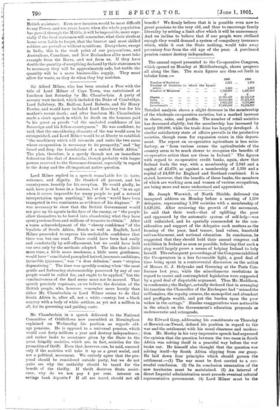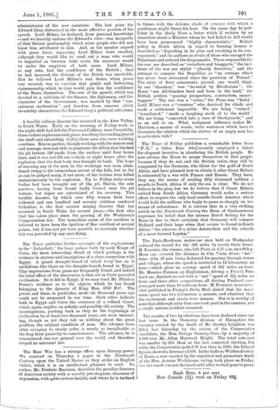Sir Edward Grey, addressing his constituents on Thursday at Berwick-on-Tweed,
defined his position in regard to the war and the settlement with his usual clearness and modera- tion. Mr. Morley in his very impressive speech had expressed the opinion that the question between the two races in South Africa was solving itself in a peaceful way before the war broke out. He himself also thought that the question was solving itself—by South Africa slipping from our grasp. He laid down four principles which should govern the settlement :—(1) The war must be first carried to a suc- cessful conclusion. (2) On its conclusion annexation of the new territories must be maintained. (3) An interval of direct Imperial administration must precede eventual colonial representative government. (4) Lord Milner must be the
administrator of the new countries. The last point Sir Edward Grey elaborated in the most effective portion of his speech. Lord Milner, he declared, from personal knowledge —and we heartily endorse Sir Edward's view—was incapable of that blatant partisanship which some people who did not know him attributed to him. And, as the speaker argued with great force, supposing Lord Milner were recalled, although they would like to send out a man who would be impartial as between both races, his successor would be under the suspicion of both races. Lord Milner, at any rate, had the confidence of the British ; that he had incurred the distrust of the Dutch was inevitable. But he believed Lord Miler's real desire, when peace was secured, was to exercise that gentle and forbearing statesmanship which in time would gain him the confidence of the Boers themselves. The rest of the speech, which was devoted to a criticism of the finance, the diplomacy, and the character of the Government, was marked by that "con- spicuous moderation" and freedom from rancour which invariably characterise Sir Edward Grey's political criticisms.







































 Previous page
Previous page